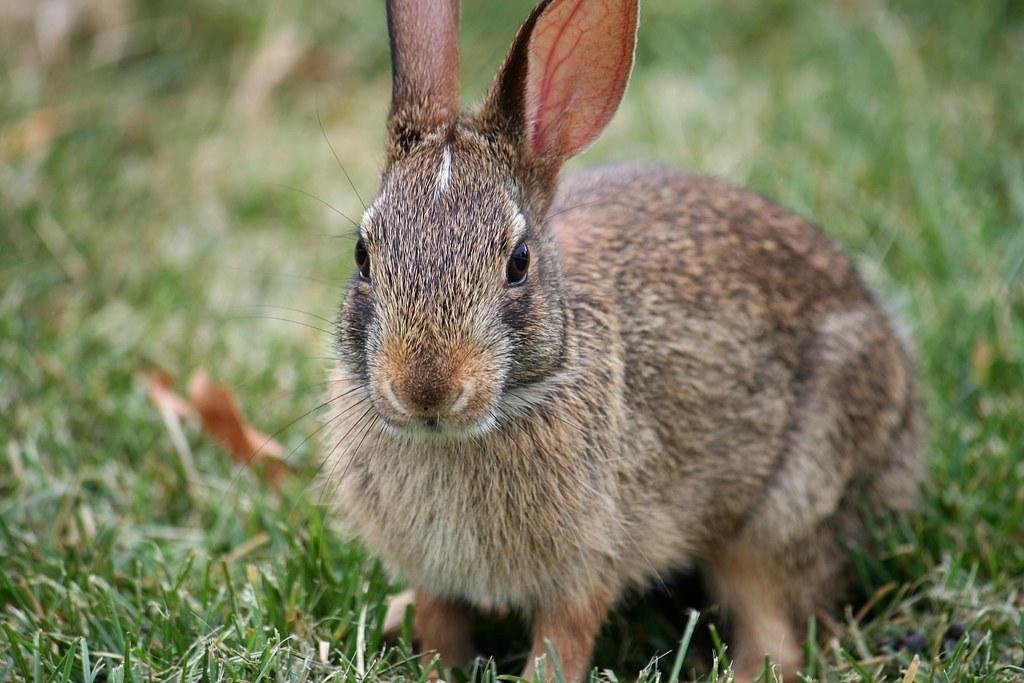Admit it. Rabbits are overtaking the neighborhoods. Cute? Yes. Destructive? Oh yes! No plant or shrub is safe from their sharp incisors. Rabbits are here in unprecedented hordes. They just do not stop. It is not only vegetation that is in danger.
In spite of their “cuteness,” wild rabbits can pose problems, some serious, for humans and pets, primarily through the transmission of diseases and parasites.
For Humans:
- Tularemia (Rabbit Fever): This bacterial disease can be transmitted to humans through direct contact with infected rabbits, through bites from infected ticks or fleas, or by handling infected animal tissues. Symptoms include fever, skin ulcers, and swollen lymph glands.
- Leptospirosis: This bacterial infection can be contracted through contact with water or soil contaminated with urine from infected animals, including rabbits. Symptoms range from mild flu-like symptoms to severe illness.
- Lyme Disease: Rabbits can carry ticks that transmit Lyme disease to humans. This disease can cause symptoms ranging from a rash to severe neurological issues if left untreated.
- Giardiasis: This is a parasitic infection that can be transmitted through contact with contaminated water or surfaces. Symptoms include diarrhea, abdominal pain, and nausea.
- E. coli and Salmonella: These bacterial infections can be contracted through contact with feces or contaminated surfaces, leading to gastrointestinal symptoms.
For Pets:
- Myxomatosis: This viral disease affects rabbits and can be spread by fleas and mosquitoes. While it primarily affects rabbits, the presence of infected wild rabbits can lead to the transmission of fleas to pets like cats and dogs.
- Rabbit Hemorrhagic Disease (RHD): Another viral disease that affects rabbits. While it does not directly affect other pets, the presence of infected wild rabbits can pose a risk to domestic rabbits.
- Fleas and Ticks: Wild rabbits can carry fleas and ticks that can infest pets, leading to discomfort and the potential transmission of diseases like Lyme disease.
- Parasites: Wild rabbits can carry various parasites such as mites, which can infest pets and cause skin issues.
- Predation Risks: If pets, particularly small dogs and cats, come into contact with wild rabbits, they might be exposed to predation risks or aggressive encounters.
General Precautions:
- Avoid handling wild rabbits and their nests.
- Ensure pets do not come into contact with wild rabbits or their droppings.
- Maintain good hygiene, such as washing hands after being outdoors, in the garden or handling animals.
- Keep pets up to date on flea, tick, and parasite preventatives.
These precautions can minimize the risks posed by wild rabbits to humans and pets.
The world view: Rabbits are a significant threat to New Zealand’s agriculture and biodiversity since they were introduced in the 1800s. Rabbits can eat as much as a sheep in a day, and the New Zealand ministry of primary industry estimates that they cost the country NZ$50 million in lost production and NZ$25 million in pest control each year. Can it happen here?
Was this post useful?
Average rating 5 / 5. Vote count: 3
No votes so far! Be the first to rate this post.











